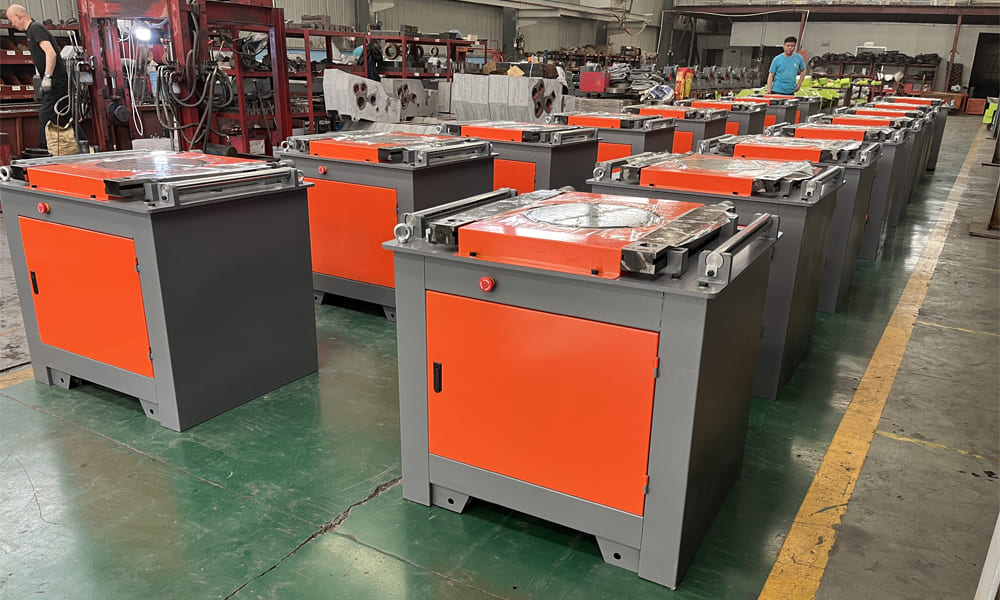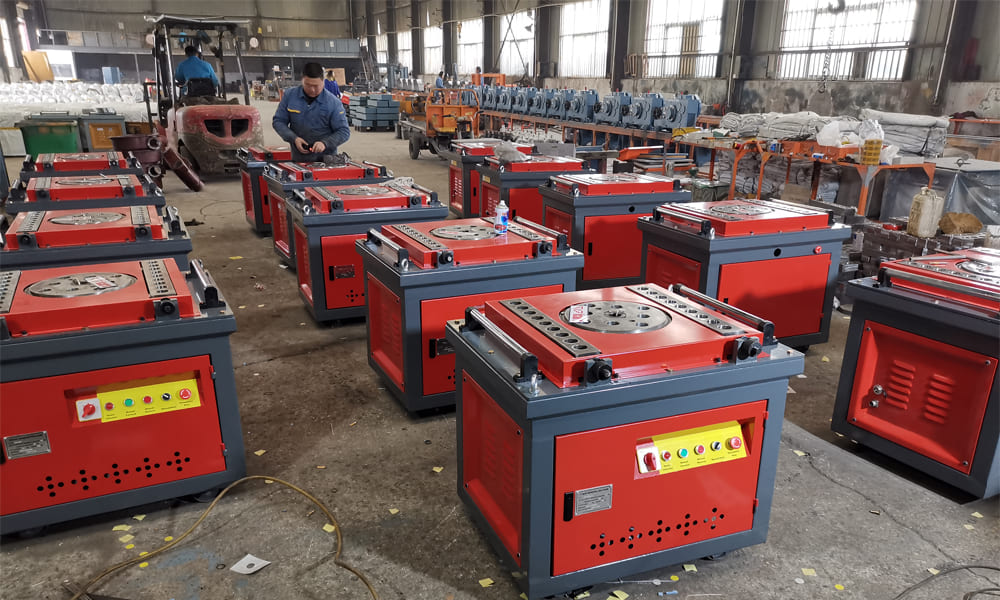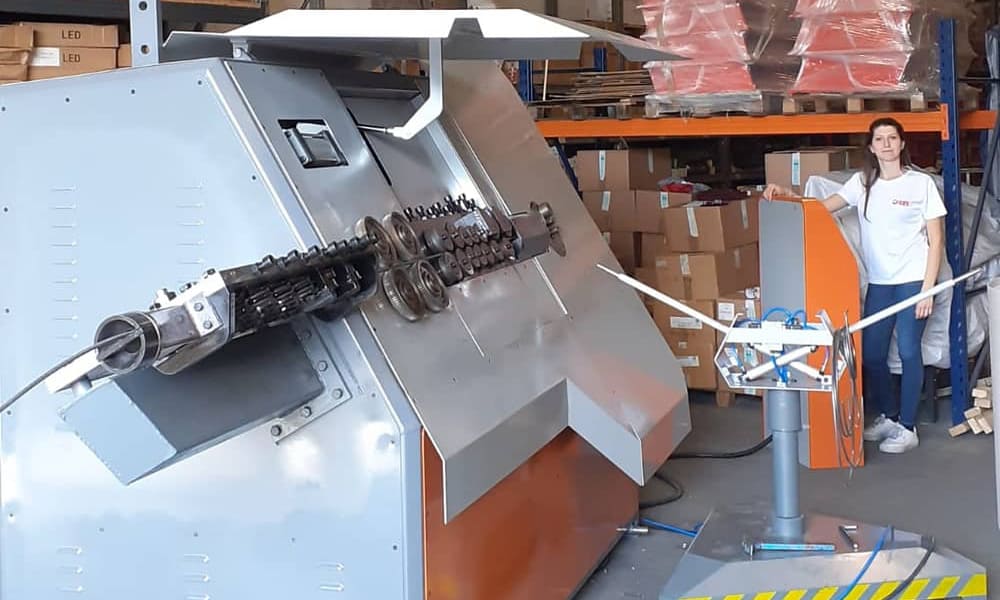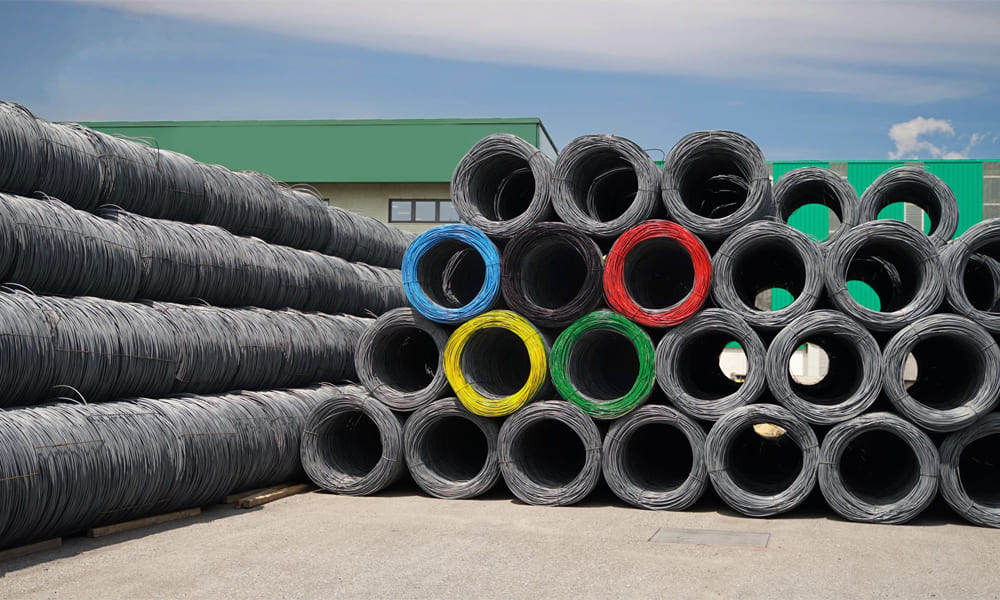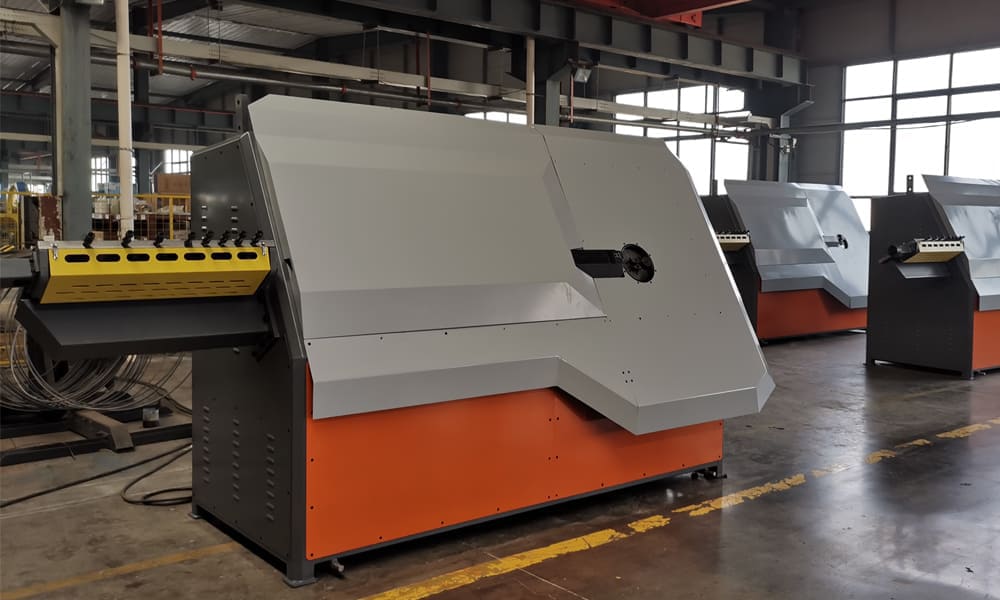How Much Can a Cutter Bender Rebar Machine Process in an 8-Hour Shift?
The daily output of a Cutter Bender Rebar machine depends on several factors such as the machine model, bar specifications, bending complexity, and operator skill. Below is a general reference to help estimate daily processing volume over an 8-hour shift.
1. Theoretical Output (Using Standard Machines as an Example)
-
Simple Bends (e.g., 90° Hook):
Average cycle time: ~20 seconds per bend
Approx. 180 bends per hour → 1,440 bends in 8 hours -
Complex Bends (e.g., Spiral Shapes):
Average cycle time: ~90 seconds per bend
Approx. 40 bends per hour → 320 bends in 8 hours
2. Key Factors Affecting Output
-
Bar Diameter: Larger bars (e.g., Φ20 and above) take longer to bend.
-
Level of Automation: CNC bending machines typically offer 2 to 3 times higher efficiency compared to manual machines.
-
Team Efficiency: Faster loading, positioning, and unloading can significantly boost overall productivity.
-
Machine Condition: Worn-out or poorly maintained machines may see a 20% to 30% drop in efficiency.
3. Estimated Output in Practice
-
Manual Bending Machines:
Typically handle 800 to 1,200 bends per 8-hour shift, depending on bend complexity. -
CNC Bending Machines:
With automatic feeding, can achieve 1,500 to 3,000 bends per 8-hour shift.
4. Recommendation for Accurate Estimation
To determine more precise output, consider the following:
-
Refer to Machine Specifications: Use the “cycles/hour” rating from the user manual.
-
Field Testing: Measure the actual bending time on-site using typical steel bars.
-
Adjust for Real-World Conditions: Account for pauses due to adjustments, breaks, and downtime. A common adjustment is to reduce the theoretical capacity by 20%.
Example:
If a machine is rated at 200 bends/hour:
→ 200 × 8 hours × 0.8 (real-world factor) ≈ 1,280 bends per shift
Conclusion
While theoretical calculations provide a baseline, actual output should be adjusted based on on-site conditions and project-specific requirements for a more reliable estimate.

